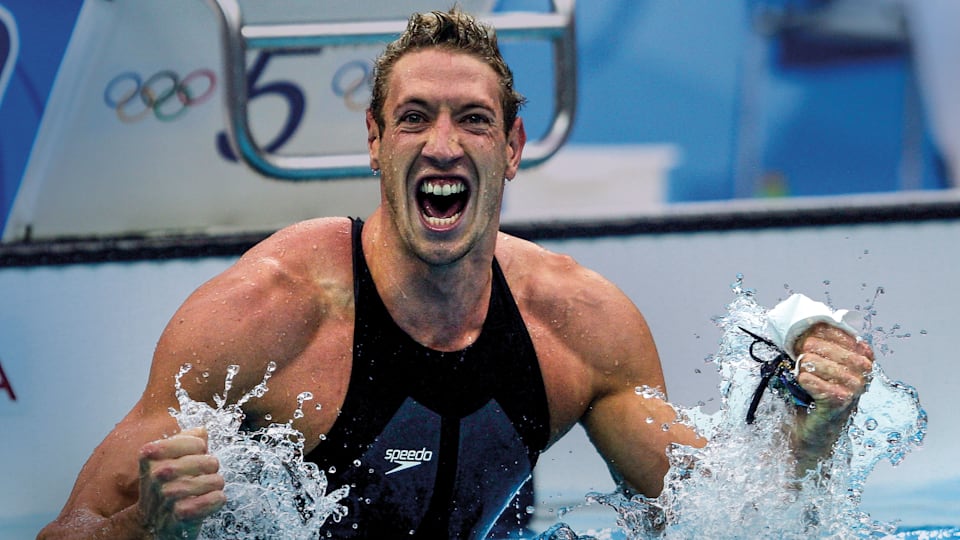“Seize the moment”
Olympic swimming gold medallist Alain Bernard believes Paris 2024 could be transformative for the sport in France.

His list of achievements explains why he is held in such esteem, within French swimming in particular and French sport generally: four Olympic medals, two of them gold. Top of the list is the 100m freestyle title at the Olympic Games Beijing 2008. The first – and still the only – Frenchman to achieve this. Now 41, Bernard retired from swimming nearly 10 years ago. But not from the pool, and he’ll be at Paris 2024: an event he believes will have a big impact on French swimming, both in the short term and in the future.
What will you be doing during the Games in Paris?
I’m lucky to be able to experience them from the inside. I’ll be working for Eurosport as a consultant for the swimming events. I’ll be giving technical explanations, like why a particular swimmer is fast and why another isn’t doing as well. During the second week of the Games, I’ll be there for public relations work with a partner, and will do the same at the Paralympics.
Is being a consultant for a broadcaster a new role for you?
No. I started at Rio 2016, a year after ending my swimming career. At Tokyo 2020, I did the commentary from a box in Paris. Not ideal. Paris 2024 looks like being a totally different affair, with an amazing level of excitement. I was lucky to be there when the Torch Relay started in Marseille, on 8 May, and I could see just how excited the public were. I think the start of the relay in France really launched Paris 2024 for the French.
Have you been involved in the Paris 2024 preparations?
I’ve been working for several years with a company based in Montpellier, in south-east France, Vogo Sport, which specialises in video for sport. We’ve developed a system that analyses movement and technique, which is installed in the Olympic Aquatics Centre in Saint-Denis. It’s used particularly by divers who want to better analyse their performance. Through this project, I’m very proud to have helped move the sport forward.
For the first time in their careers, French swimmers will get to experience the Olympic Games in their own country. Does that make it a totally different experience?
A lot will be expected of them, so they’ll be under that extra bit of pressure. Having the event in your own country provides an extra layer of emotion. But a high-level athlete always tries to do their best, whichever country they’re in.
The Olympic Games are the culmination of years of work, and for swimming, they last just eight days. That’s both a very long and a very short time. You need to know how to seize the moment, savour the experience to the full, get caught up in the emotion but not lose your focus and miss your chance. It’s a tough balance to strike.
What do you think of the competition venues for swimming that the Paris 2024 organisers have chosen?
The organisers are really placing the Games in the heart of the city. The venue choice for the aquatic disciplines, with swimming and water polo at the Défense Arena, open water swimming in the Seine, and artistic swimming, diving and some water polo at the new Olympic Aquatics Centre, is very well thought out. It’ll offer a larger number of competition venues, with different experiences for the spectators. The Défense Arena will have a real cauldron atmosphere. The Aquatics Centre will have a second life after the Games, as a venue for other sports like padel and climbing. As for the River Seine, these Games have really sped up the efforts to make it safe to swim in. Without them, the clean-up work may possibly never have been done.
Can Paris 2024 change French swimming for ever?
Up till now, swimming has been very scattered geographically, with no central point. Going forward, the Olympic Aquatics Centre will play this role. It’s already been decided that France will hold the European Championships there in 2026. Two years after Paris 2024, this “second coat” will give swimming more visibility. All that should help to develop the sport. I hope that, after the Games, there’ll be lots of young French people who go to a pool and take up swimming, in one form or another.
Published in the Olympic Review 122